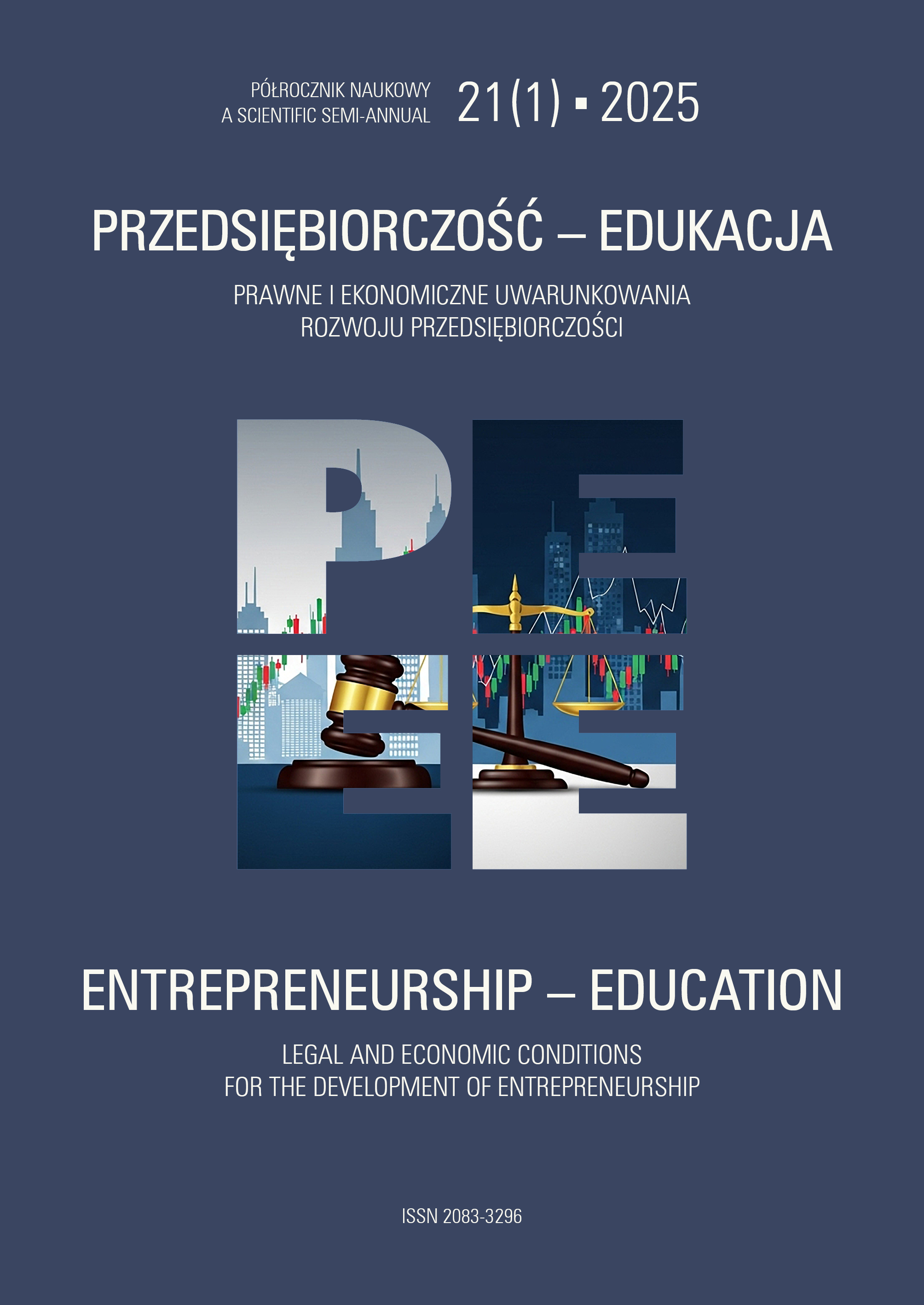On regulating AI from legal and economic perspectives in the context of the AI act
DOI:
https://doi.org/10.24917/20833296.211.20Keywords:
AI, AI Act, AI regulation, Artificial intelligence, economic analysis of law, law and economicsAbstract
The subject of the article is the analysis of the issue of artificial intelligence (AI) regulation from the perspective of the economic analysis of law research method (law and economics) in the context of EU AI regulations. The aim of the study in particular is to present selected methods of regulating AI and to answer the question of whether economic thinking, and in particular the regulatory concepts presented in the article, are reflected in the AI act. The article also contains an assessment of the regulatory solutions used in the AI act from the perspective of law and economics. The main conclusion is to confirm the need to cover AI with legal regulation and to build a system that combines elements of various regula- tory methods applied to a given area in which AI is used, depending on the level of risk generated. The adoption of such a method allows for a positive balance of benefits and costs related to the phenomenon of artificial intelligence. The article in general positively evaluates the approach to regulating AI adopted in the EU AI regulations However, the article also indicates the need to supplement the regulatory system with appropriate civil law provisions.
References
Becker G. (1978). The Economic Approach to Human Behavior, The University of Chicago Press.
Cooter R., Ulen T (2009). Ekonomiczna analiza prawa. Warszawa: C.H. Beck.
Kabza J. (2014). Koncesje i zezwolenia. Analiza ekonomiczna. Warszawa: Wolters Kluwer.
Kabza J. (2023). Dokąd wiedzie trzecia droga? O zaletach, wadach i law and economics. W J. Glumińska Pawlic, B. Przywora (red.), Społeczny wymiar gospodarki rynkowej. Warszawa: C.H. Beck, s. 61-77.
Komisja Europejska (2021, 21 kwietnia). Wniosek Rozporządzenie Parlamentu Europejskiego i Rady ustanawiające zharmonizowane przepisy dotyczące sztucznej inteligencji (akt w sprawie sztucznej inteligencji) i zmieniające niektóre akty ustawodawcze unii {SEC(2021) 167 final} - {SWD(2021) 84 final} - {SWD(2021) 85 final} Wniosek Komisji Europejskiej z dnia 21.4.2021 r., COM(2021) 206 final, 2021/0106 (COD).
Mackaay E. (2025, 9 stycznia). History of law and economics, [w:] Encyclopedia of Law & Economics, red. B. Bouckaert, G. De Geest, pozyskano z: http://encyclo.findlaw.com;
Rozporządzenia Parlamentu Europejskiego i Rady (UE) 2024/1689 z dnia 13 czerwca 2024 r. w sprawie ustanowienia zharmonizowanych przepisów dotyczących sztucznej inteligencji oraz zmiany rozporządzeń (WE) nr 300/2008, (UE) nr 167/2013, (UE) nr 168/2013, (UE) 2018/858, (UE) 2018/1139 i (UE) 2019/2144 oraz dyrektyw 2014/90/UE, (UE) 2016/797 i (UE) 2020/1828 (akt w sprawie sztucznej inteligencji).
Stelmach J., Brożek B., Załuski W. (2007). Dziesięć wykładów o ekonomii prawa. Warszawa: Wolters Kluwer.
Stelmach J., Soniewicka M. (2007). Analiza ekonomiczna w zastosowaniach prawniczych. Warszawa: Wolters Kluwer.
Downloads
Published
How to Cite
Issue
Section
License
Copyright (c) 2025 Entrepreneurship – Education

This work is licensed under a Creative Commons Attribution-NoDerivatives 4.0 International License.
Articles are published under the terms of the Creative Commons License (CC BY-ND 4.0; Attribution– NoDerivs).

